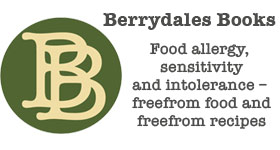|
|
Milk powder better than liquid drops to treat milk allergies |
A small study by Johns Hopkins Children’s Center and Duke University in the US shows that treating children with milk powder is more effective than liquid milk drops. The 30 allergic children in the study were aged between six and 17, and were initially all given milk drops under the tongue (sublingual immune therapy (SLIT)) to build up tolerance. After this, they were randomly assigned to one of three groups. Ten of them stayed in the SLIT treatment programme, and were given 7mg of milk a day. Ten were given 1 gram of dry milk powder, and ten were given 2 grams of milk powder in an approach known as oral immunotherapy (OIT). The SLIT group were less effective at building up tolerance by the end of the trial, with only one of the children passing an oral food challenge that required them to drink 8 ounces of milk. However, 14 of the other 20 children successfully passed the food challenge. In this group, those children on 2g of dry milk powder had the greatest improvement, with six of the ten on 1 gram achieving success, and 8 of the 10 children on 2 grams. However the children treated with milk powder had more severe allergic reactions during treatment. To determine the efficacy of the treatment after its two-year period, the 15 children who passed the oral food challenge were asked not to drink milk, and to return for follow-up challenges after one and six week intervals. Six of the 15 had allergic reactions, and two within only one week. Despite this, all the children in the OIT group successfully introduced milk into their daily diets following this trial, and the researchers conclude that it is encouraging to know that children who in the past may have experienced severe reactions to small amounts of milk now have no reactions or mild reactions to much higher doses. Source: Journal of Allergy and Clinical Immunology First published December 2011 More research on the management of cow's milk allergy
|













